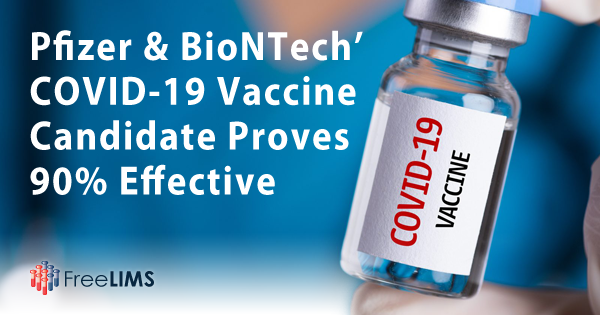
Pfizer and BioNTech’ COVID-19 Vaccine Candidate Proves 90% Effective in First Results from Phase 3 Clinical Trial
Date: Nov 12 2020
News Source: www.techcrunch.com
The COVID-19 vaccine being developed by Pfizer and its partner BioNTech has shown to be effective in blocking infection in 90 percent of participants in its Phase 3 clinical trial, the companies announced on November 09, 2020. That’s based on data analyzed by an external, independent committee assigned to check the results of the trial, and reflects only early results from the trial, and not the final verified result — but it’s still extremely promising news for progress towards a viable and more broadly available vaccine.
Pfizer and BioNTech’s vaccine candidate is an mRNA-based vaccine, which is a newer technology that many companies pursued for COVID-19 in part because it offers some advantages in the pace of development and potential efficacy. These results from the test were based on an equable case total of 94 confirmed COVID-19 cases among study participants — passing the minimum threshold agreed to by the companies and the FDA of 62 confirmed cases for a proper, scientifically rigorous assessment.
The Phase 3 trial conducted by the companies included 43,358 participants, and Pfizer reports “no serious safety concerns have been observed” thus far in addition to the positive prevention rate. Based on this early data, individuals who receive the vaccine are protected at 28 days after the first dose, and the vaccine uses a two-dose process.
There is still additional safety testing and continued studies to conduct, with the companies estimating that two full months of safety data (which is what the FDA requires for Emergency Use Authorization) will be available in the third week of this month. Participants will also be monitored for two full years after they receive their second and final dose in order to test for long-term effects. Pfizer still thinks that it can produce up to 50 million doses of its vaccine by the end of this year, and as many as 1.3 billion doses through 2021.
Full data from this trial still needs to undergo peer-review by other researchers and scientific publications, but this is definitely the most promising and clearly positive news yet from the vaccine development front and could mean that large-scale distribution of a vaccine begins even before the end of 2020 if all goes well.

